Plex: 19 October 2022
News and views from around the Plex.

The Biweekly Plex Dispatch is an inter-community newspaper published by Collective Sense Commons on first and third Wednesdays of each month. Price per issue: 1 USD, or your choice of amount (even zero).
In This Issue
- Community Wisdom Gardening Summit and Pattern Jam
- Virtual Iron Bird Workshop Website (2004)
- Innovation Anywhere, Opportunity Everywhere
- Jerry Michalski on OGM and Rel8
- Peppers and Ponds
- The Problem with Problems
- Word Nerds and the Power of Handwriting
Community Wisdom Gardening Summit and Pattern Jam
by charles blass
tuesday november 1st, noon-1:30pm pacific (8:00-9:30pm cest) (note: clocks between america & europe are off by an hour that week) >> zoom link on registration
RSVP: <http://bit.ly/wisdom-garden-summit-20221101>
we are honored to welcome a circle of visionary elders and community members to gather in the garden of ideas, histories and futures. we'll inquire into how we might co-evolve and embrace, navigate and calibrate tools and practices for continual meta-improvement, in terms of collective conversation, memory, and intersectional innovation. toward the possibility of wisdom flow.
>> hello, charles here, inviting you to an exploratory conversation, considering practical application of doug engelbart's 'abc model', augmented with a social layer of patterns inspired by tom atlee’s work around wholeness, integrating his approach to wisdom in the sense of the ‘prime directive of wise democracy':
we seek to evoke and engage
the wisdom and resourcefulness of the whole
on behalf of the whole.
>> we'll be joined by esteemed guests including
Tom Atlee, Howard Rheingold, George Por (Kernel Mentor), others TBA
plus Kernel Fellows and friends in the wider ecosystem of planetary stewards,
Holly Grimm - Aikphrasis, Pedro Parrachia - Floristic, Christina Trout - LaLa Gardens, Diogo Jorge - Agroforest DAO, Cherno Yahya Jallow, Glenn Poppe - Meem Protocol, Daniel Friedman, Brad DeGraf et al - Common Sensemakers (Open Source Attention)/ Active Inference Institute/ Complexity Weekend/ NAO (networked autonomous organism)/ Token Engineering Commons: 'DAO Gardens'.... a blooming meadow of hearts, minds, and projects aligned in mutual care.
<<<^>>>
main event is scheduled for 90 minutes. some of us will stay on in a less bounded mode after the first segment.
the session will be an opportunity to examine doug’s framework through a lens of wisdom; many groups (including kernel) are increasingly applying the metaphor of community garden to a group's repository at large (ie implicit repository of repositories). i suggest this is particularly apt in the special scenario of a network aspiring to be dynamically collaborative, self-aware and self-evolving; in engelbart parlance, within the 'bootstrapping collective IQ' landscape of 'dynamic knowledge repository' (DKR) and 'networked improvement community' (NIC).
augmenting augmentation
extending this line of thought, the dynamic knowledge repository aka community garden becomes the infrastructure enabling wisdom to emerge; if and to the extent the garden is tended collaboratively, in conversational flow, by a networked improvement community of gardeners.
for a few years i've been gradually formulating an amalgam inspired by the DKR-NIC 'twins' – both are needed to set the conditions for wisdom to emerge/ generate/ be yielded and harvested – seeking ways to activate doug’s work based on tom’s critical distinction between collective intelligence and collective wisdom. simply put, collective intelligence is not necessarily good for everyone, while wisdom promotes the 'long-term broad benefit of the whole', ie seven generations or more. this inquiry has led me to discover and collect a rudimentary set of patterns of 'wise collaboration'.
the conversation will frame the way forward in spreading awareness, co-learning these endangered legacies, and ‘growing experiments in the community garden’ particularly with the kernel cohort in which we are immersed.
if you made it this far, you will likely not want to miss this momentous gathering :-)
onward
charles
More links and RSVP: <http://bit.ly/wisdom-garden-summit-20221101>
Virtual Iron Bird Workshop Website (2004)
by Julian Gómez
I’ve finished re-creating the 2004 NASA Virtual Iron Bird Workshop website. Actually, it’s not a re-creation, but a compendium of what were multiple segments.
Placing it as a website at the Internet Archive is turning out to be problematic, so several members of the FJB community have offered to help find a home for it, with solutions such as IPFS.
More reading: NASA Gets a New Fix on Problems (Wired, 2002) - “Driven by an Oracle database, a computerized simulator will allow engineers to create what-if scenarios on spacecraft, instead of having to build mockups.”
Innovation Anywhere, Opportunity Everywhere
by Judy Benham
The thoughts reflected in this presentation by NSF Director Panchanathan, “Innovation anywhere, opportunity everywhere: The trajectory of global collaboration,” fit well with the vision of OGM.
The sharing of insights, knowledge, and innovation across the globe is critical to address the challenges we all face with environmental challenges, social divides, and political polarization.
The better we can communicate, share, and build on one another’s wisdom and knowledge, the more rapidly we can progress. Expanding education to underserved groups will enable more people to participate, create, and develop the solutions that are needed.
Jerry Michalski on OGM and Rel8
BPD editor Peter Kaminski sat down with Jerry Michalski to talk about OGM and Rel8.
PETE: So Jerry, tell me about OGM (Open Global Mind).
JERRY: When people say, “What do you do,” the brand I stick on my forehead most often is that I’m the founder of OGM, which is a community of practice that has been meeting to try to figure out how to help humans make better decisions together by having some kind of collective memory.
And I’m proud to do so and happy to do so. It was really fun on this last trip to sort of use that over and over again in different contexts.
And it feels like we’re slowly chewing on that problem, in our little ways. And then every now and then we have a flurry of activity, in FJB, or Fellowship of the Link.
PETE: You said an interesting thing, “community of practice.” It’s more like there are overlapping communities…
JERRY: It’s a “communities” of practice. Which is fine, I like that. 🙂
PETE: Yeah, exactly. 🙂
Okay. Tell me about Rel8. What is Rel8 and how does it relate to OGM?
JERRY: Rel8 tries to answer the question, “What kind of organization(s) would it take to stand up a shared memory for?”
Much in the way that Wikipedia is a shared encyclopedia for humans has been translated into many languages.
Wikipedia is just an encyclopedia, so I can point to exactly which kind of software it uses, what servers it runs on, what its funding model is. All those things are really nice and and crisp and clear. And even if the Wikipedia has some complicated history and dark sides, still, the whole thing is very tangible and describable.
“The Big Fungus” is not, and hence my resorting to metaphors like “The Big Fungus.”
It’s like this shared memory has to make room for people who have very different preferences or visualization schemes or note-taking schemes or whatever, and it has to figure out how to settle them together in the middle, and doing that therefore isn’t like one big organization writing one body of code, but rather, more like herding cats and, and motivating and inspiring. But also, pointing to the things that work. And maybe also modeling good behavior and helping seed or add starter to the fungus.
And, as we’ve talked about multiple times, my Brain data file being a good “sourdough starter” for the larger social mind seems like low-hanging fruit to me.
PETE: Tell me about “the tile process.”
JERRY: The tile process is a piece of Rel8 that says, here, just as a prototype, we’re going to stand up one way of thinking about large projects being decomposed into small projects, a discussion in the community about what those projects should be, a funding mechanism to create bounties that fund those projects. And then the use and refinement of those objects in this funny, squishy fungus platform that we’re trying to develop.
It could be a DAO, and could be operated in that way. But I’m not a big fan of DAOs or of cryptocurrency voting on what priorities are.
I’m really interested in, and I think you would empathize with this, communities actually sitting down and talking through priorities and what it means to them.
Maybe the DAO way of doing that doesn’t preclude that, but it feels like it often sort of does. I’ve seldom seen dot voting or money voting lead to a good set of architectures and paths in some direction that people want to go.
And so I’m trying to compensate for that and maybe prototype and then find other things that work better and it fold them in for that.
PETE: Last question. If I’m a new person coming to OGM, where is OGM? Should I come to the Zoom calls? Which Zoom calls? Should I come to the mailing list? Should I come to the Mattermost?
JERRY: So the way I describe it is, hey, can I put you on the OGM Google Group, which is just an announcement list and sort of conversational thing, and a couple people put a lot of articles on it instead of the CSC Mattermost server.
When I put you on the OGM list, I will also send you a link to get on the Mattermost list, where we have channels that are more focused and more persistent, and you might discover that one of those channels is really helpful to you.
We have a call Thursday mornings, which is sort of the “heartbeat call.” We alternate between two formats, and then there’s a bunch of other standing calls for different sorts of things.
And Pete put up a nice page that has sort of a calendar of when those calls meet. And that’s kind of my spiel.
PETE: Thank you, Jerry. And thank you for all you do for OGM and Rel8 - I know the community really appreciates you and everything you do.
Peppers and Ponds
by Ken Homer
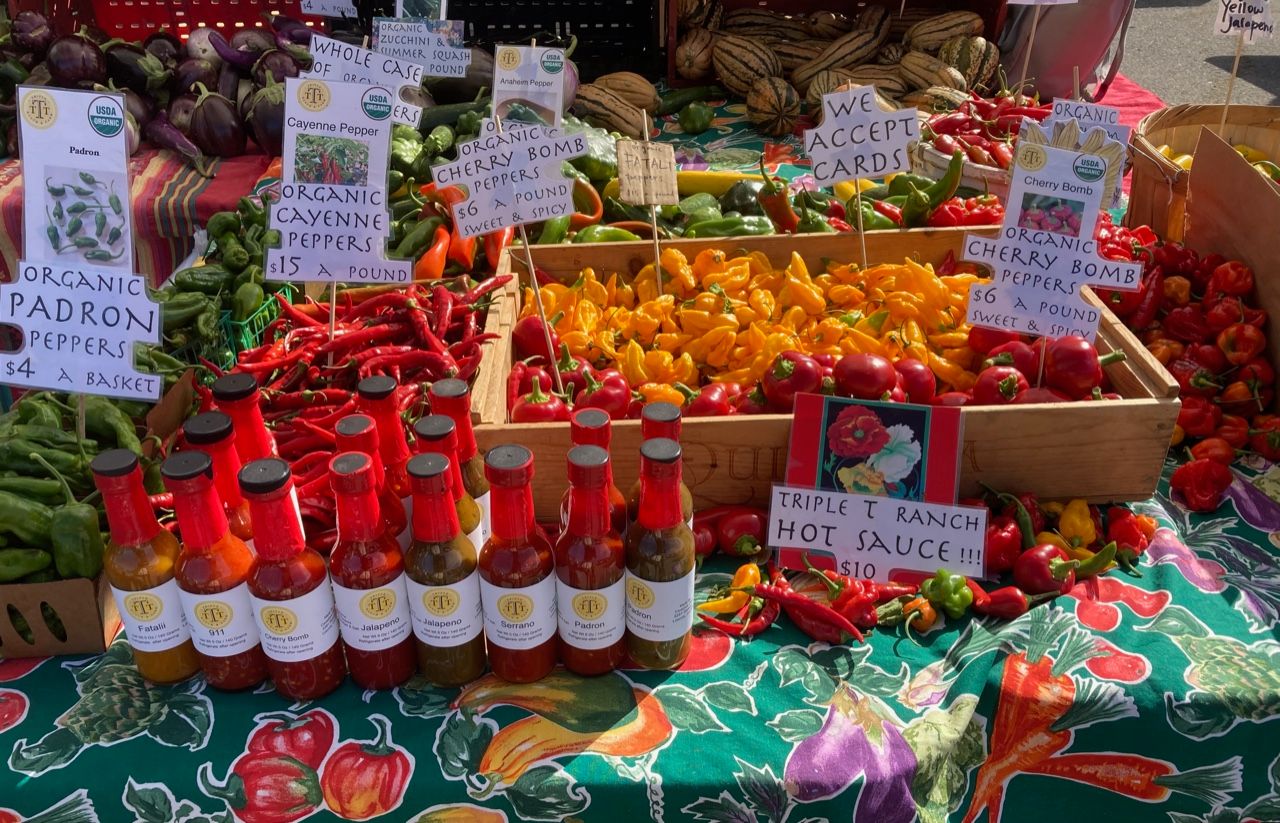

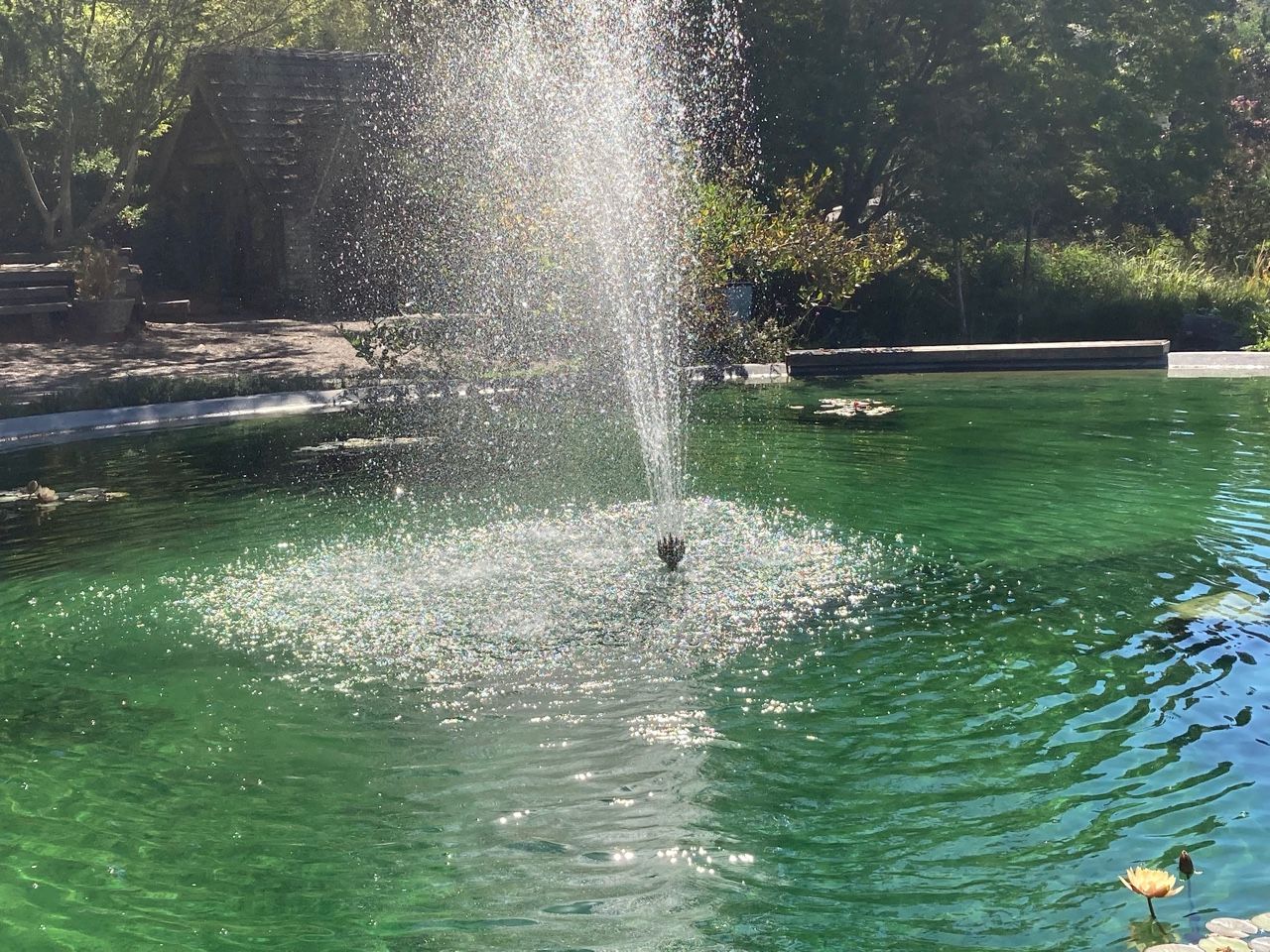
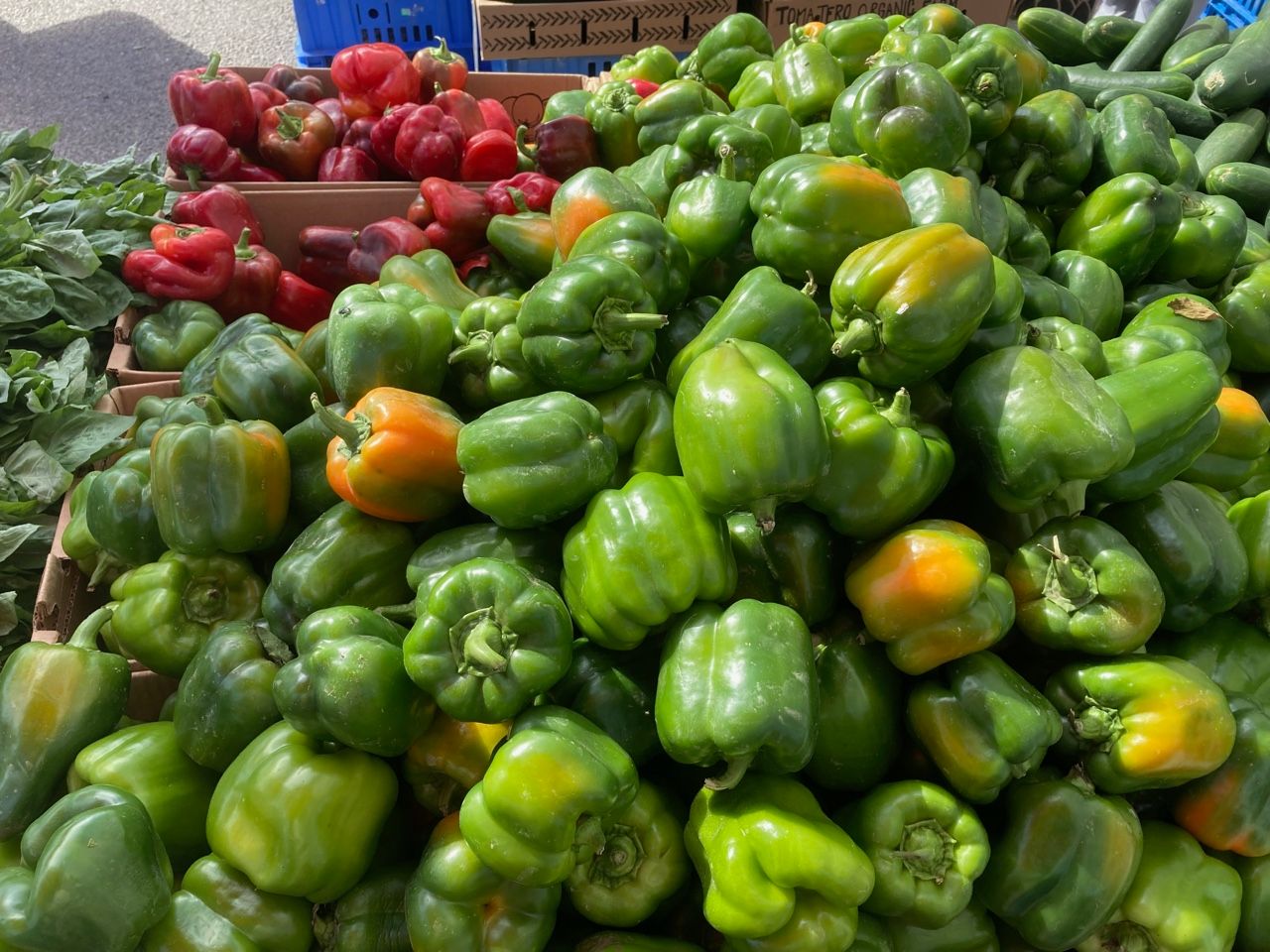
The Problem with Problems
by Ken Homer
Free association test. What are the first five words to come to mind when you hear the word, “problem?”
Question: Was the word: “solution” among your top responses?
It would not be surprising if it were. A lot of things in our language are found in binary pairs: man/woman, child/elder, self/other, and problem/solution, are just a few examples among thousands. Binary thinking has its place and can be very useful.
However, the problem with binary thinking is that it fails us utterly when it is applied to situations that have multiple dimensions which get squashed down into a simple binary choice. Wicked problems, wicked messes, social messes, and ill-structured problems, all present us with enormous challenges which get compounded when we use the term “problem” in their place.
Wicked problems, as a class of challenges, were first defined back in the 1960s. The exact origin of the term is unclear but in the early 1970s two researchers by the name of Horst Rittel and Melvin Webber formally defined the term in a paper on social policy planning. They contrast wicked problems with “tame” problems, such as those found in mathematics, accounting, chess, puzzle-solving, engineering, etc.
They list ten specific characteristics of wicked problems:
- There is no definitive formulation of a wicked problem.
- Wicked problems have no stopping rule.
- Solutions to wicked problems are not true-or-false, but better or worse.
- There is no immediate and no ultimate test of a solution to a wicked problem.
- Every solution to a wicked problem is a “one-shot operation”; because there is no opportunity to learn by trial and error, every attempt counts significantly.
- Wicked problems do not have an enumerable (or an exhaustively describable) set of potential solutions, nor is there a well-described set of permissible operations that may be incorporated into the plan.
- Every wicked problem is essentially unique.
- Every wicked problem can be considered to be a symptom of another problem.
- The existence of a discrepancy representing a wicked problem can be explained in numerous ways. The choice of explanation determines the nature of the problem's resolution.
- The social planner has no right to be wrong (i.e., planners are liable for the consequences of the actions they generate).
Issue-Based Information Systems whiz Jeff Conklin has his own six characteristics of wickedness:
- The problem is not understood until after the formulation of a solution.
- Wicked problems have no stopping rule.
- Solutions to wicked problems are not right or wrong.
- Every wicked problem is essentially novel and unique.
- Every solution to a wicked problem is a “one shot operation”.
- Wicked problems have no given alternative solutions.
Source: Wicked problem (Wikipedia)
Number three on Jeff’s list is particularly interesting in that it yields up that wicked messes cannot be solved but can only be made better or worse. That’s valuable criteria for assessing progress when working with them.
Ronald Heifetz and Donald Laurie add a wonderful dimension with their distinction between technical problems and adaptive challenges. They assert that “The single biggest failure of leadership is treating adaptive challenges as technical problems.” They are good enough to list out six criteria that distinguish between the two:
| Technical Problems | Adaptive Challenges |
|---|---|
| Easy to identify. | Hard to identify (easy to deny). |
| Lend themselves to quick and easy (cut & dried) solutions. | Require relationships & approaches to work. changes in values, beliefs, roles, |
| Often can be solved by an authority or expert. | People with the problem do the work of solving it. |
| Require change in just one or few places; often contained within organizational boundaries. | Require change in numerous places; usually they cross organizational boundaries. |
| People are generally receptive to technical solutions. | People are often resistant to even acknowledging adaptive challenges. |
| Solutions can be implemented quickly, often by edict. | “Solutions” require experiments and new discoveries; they can take a long time to implement. |
List adapted from The Work of Leadership published in The Harvard Business Review, Jan/Feb 1997, by Ronald Heifitz and Donald Laurie, and Leadership on the Line, by Ronald Heifitz and Marty Linsky.
I will have more to say on this matter in future Plex posts. For now, I just want to point out that whenever people apply problem-solving approaches to wicked messes and adaptive challenges, the chances are good that they will make things worse rather than better. Often that focus on forcing wicked messes into the problem box interferes with generating potential means of coping. Hence my appeal to imagination and the need to get marginalized voices in the room before attempting solutions.
Those of us who wish to make progress in confronting and coping with such messes and challenges need to bring more precision to our language and work to ensure that those we work with understand the vast differences between these things and cease applying the word problem to them.
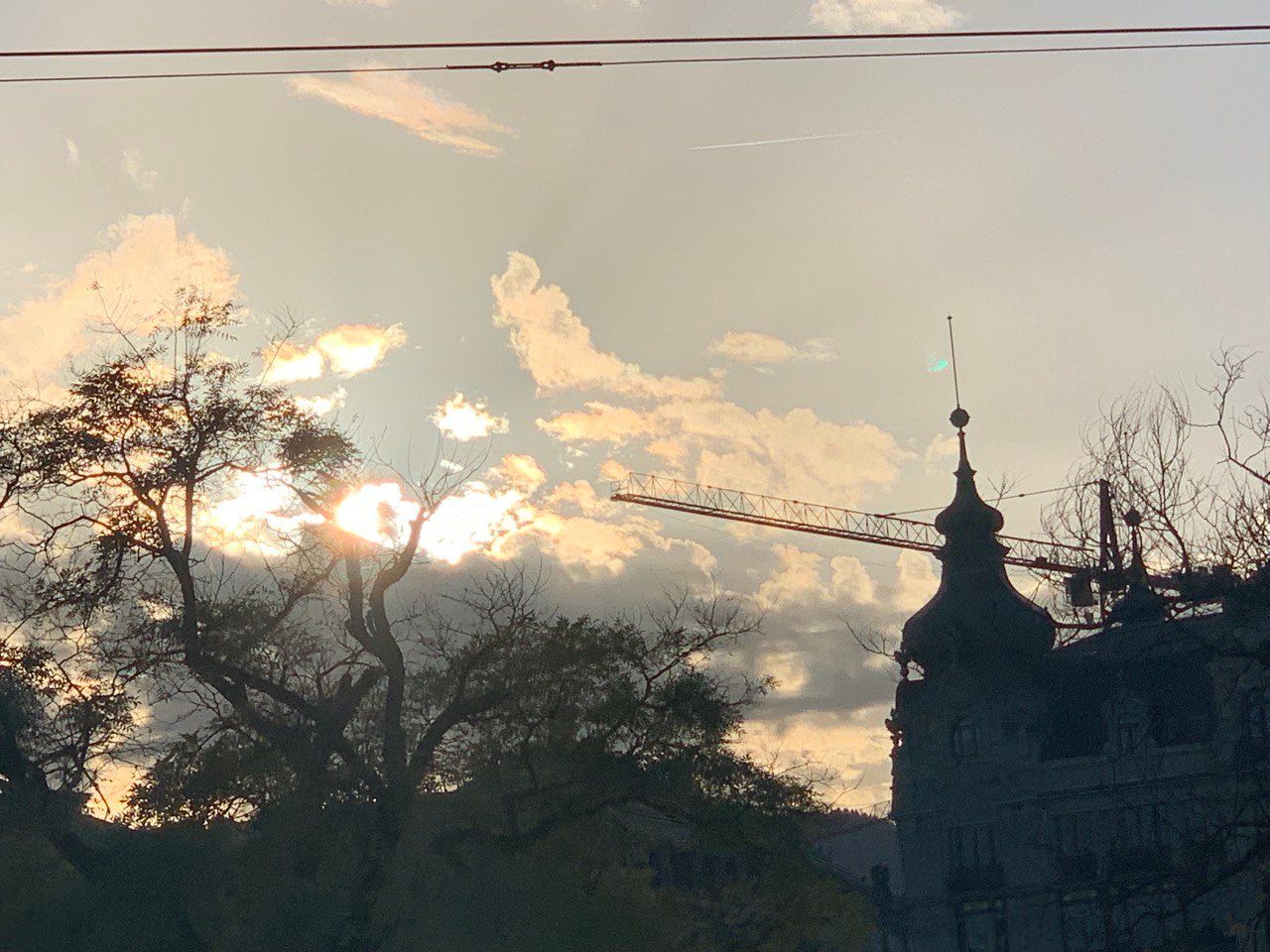
Word Nerds and the Power of Handwriting
by Wendy Elford
Words always seem to wiggle their way into my world and their wiggly source in handwriting never seems to be too far away. Or at least that was my history.
Recently I had to write something out by hand, a longer document, and I could not believe how tired my hand and forearm became.
I train for walking on hills, but not for writing anymore. Which is fine if your definition for thinking while walking is exercise squared. Now I do have some limitations with the awkward terrain bit if you want to take distance walking into account, however in taking my words for a walk, my thoughts for a walk on paper, should be straightforward. And it isn't.
The human factors consultant in me knows that the process of writing is keyed into the very thinking, like drawing as thought is. A famous physicist when told his books were a record of his thoughts, returned with the quotable statement that they were the very thoughts themselves.
Now, the technology to join up what was said with what is recorded on paper–and think here as converting this to handwriting to digital form as text, or keeping a digital record of the (hopefully readable) scrawl is one possible saviour of what was going down in our minds as the scrawling happened. I am reminded of my grandmother's loopy words which I find every time I attempt to translate her recipe book to cook up a memory of my past. I am also reminded of two or three years where I used a recording pen and my more recent experiments with writeable, erasable paper.
Livescribe, Rocketbook
So now we can double down on tech-supported options, perhaps at a superficial level for now. Pens that record the words as the text flows in cursive under your hand. Pens that transmit the scrawl–done on special paper or a special book–to a digital device either real time as a batch upload. Devices that wipe clean or paper that does. Pens that write on paper that is not really paper but behaves that way.
And the devil for word nerds who handwrite? Not exhaustion of tired hands and forearms, though that is indeed a challenge for me. I write long hand so little now it does not look like getting any better. Particularly with looming carpal tunnel in one hand (my left) and the promise of that in my right. Gel pens are my friend, though. Especially the coloured ones.
It's where I am faulty, fitness to write or a wobbly hand (not yet), that my inputs fail. The willingness to be consistent is another hurdle. Or is that really the issue? What about audio processing disorder too? So many ways to fail as a human and so little time to do it in and to recover from that and get smarter.
Sometimes the product does not help me. My rechargeable pens would not charge. The fault was simple. The plastic housing could not take the pressure of the recharging cable and so, like my tired forearm and hand, they ran out of juice. And an electronic pen that cannot recharge becomes a writing pen only. With expensive ink inserts.
The product failing me is in theory not going to limit me if I don't mind forsaking what I had already written as audio notes in the books. Half-written notes with audio I will never hear. The sadness of thoughts that are trapped in the books.
And so now I go back to the handwriting and remember that it is in the motion of the pen on the book that I baked something into my body which is not lost and never will be. The words that were spoken are held in half--downloaded audio files partly on the paper and partly in my memory. The words are not really lost and most of the notes–even if available–were, if I am honest, never going to make themselves into something sophisticated and edited. Another failure or perhaps something to accept?
And still I experiment with technology, this time a pen that can be wiped off a special type of paper and I take an image of that thought. Which gets filed–and maybe not ever accessed again. And the cycle of trapping words in some object or walking or writing them into my neurology continues as I consume and walk and write and think my way into making sense of the words that float past me in the many worlds I pass through.
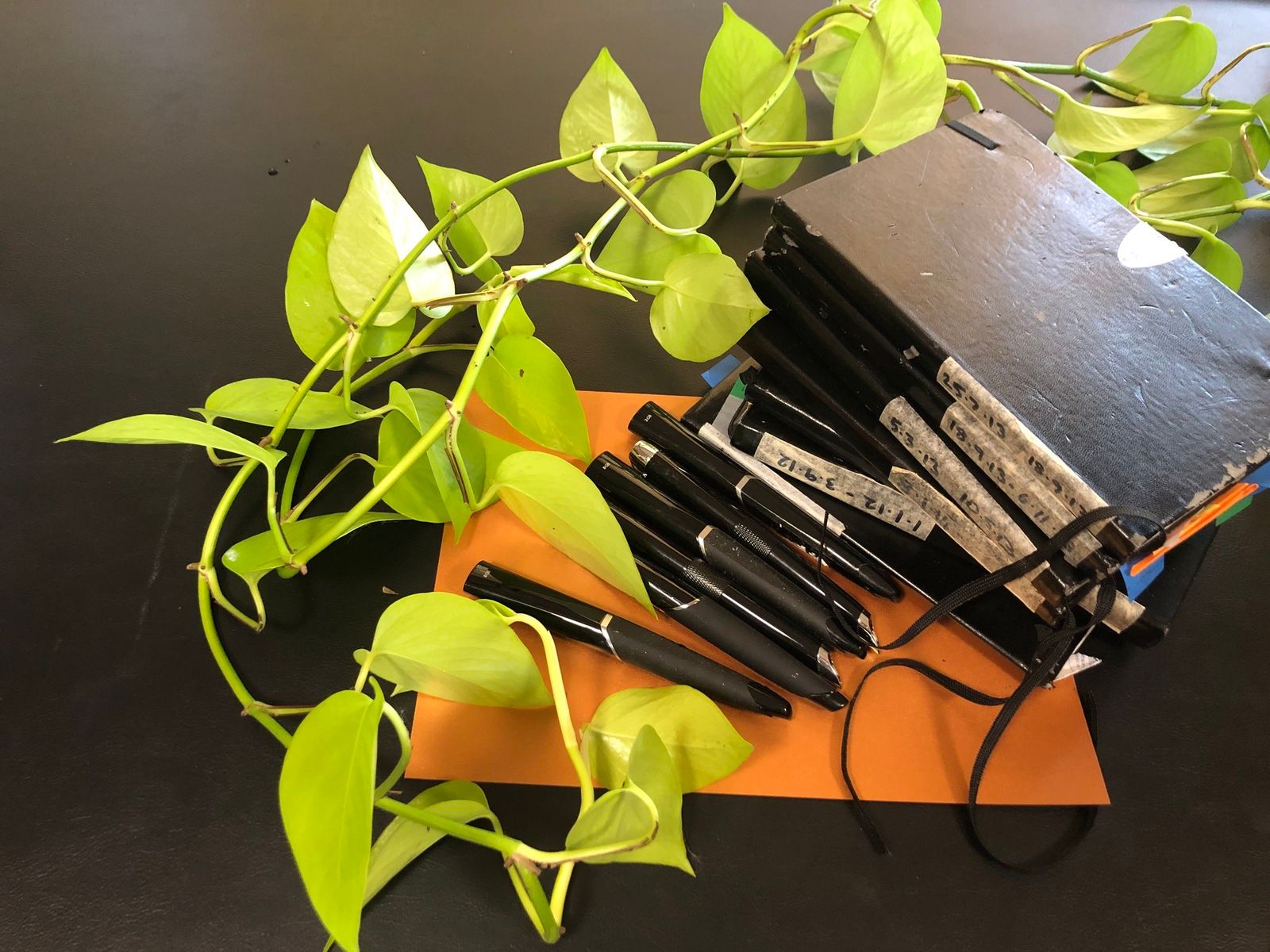
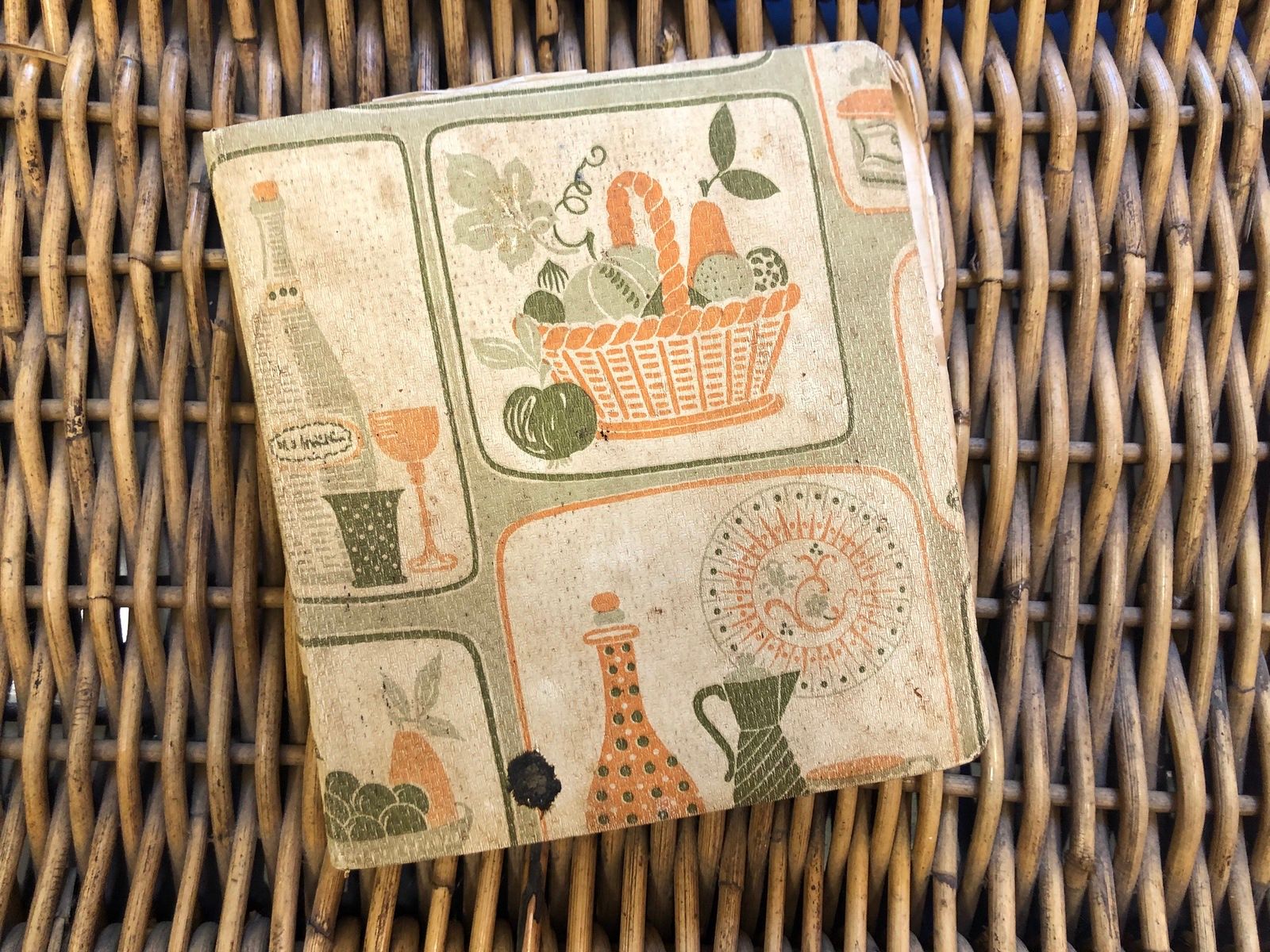
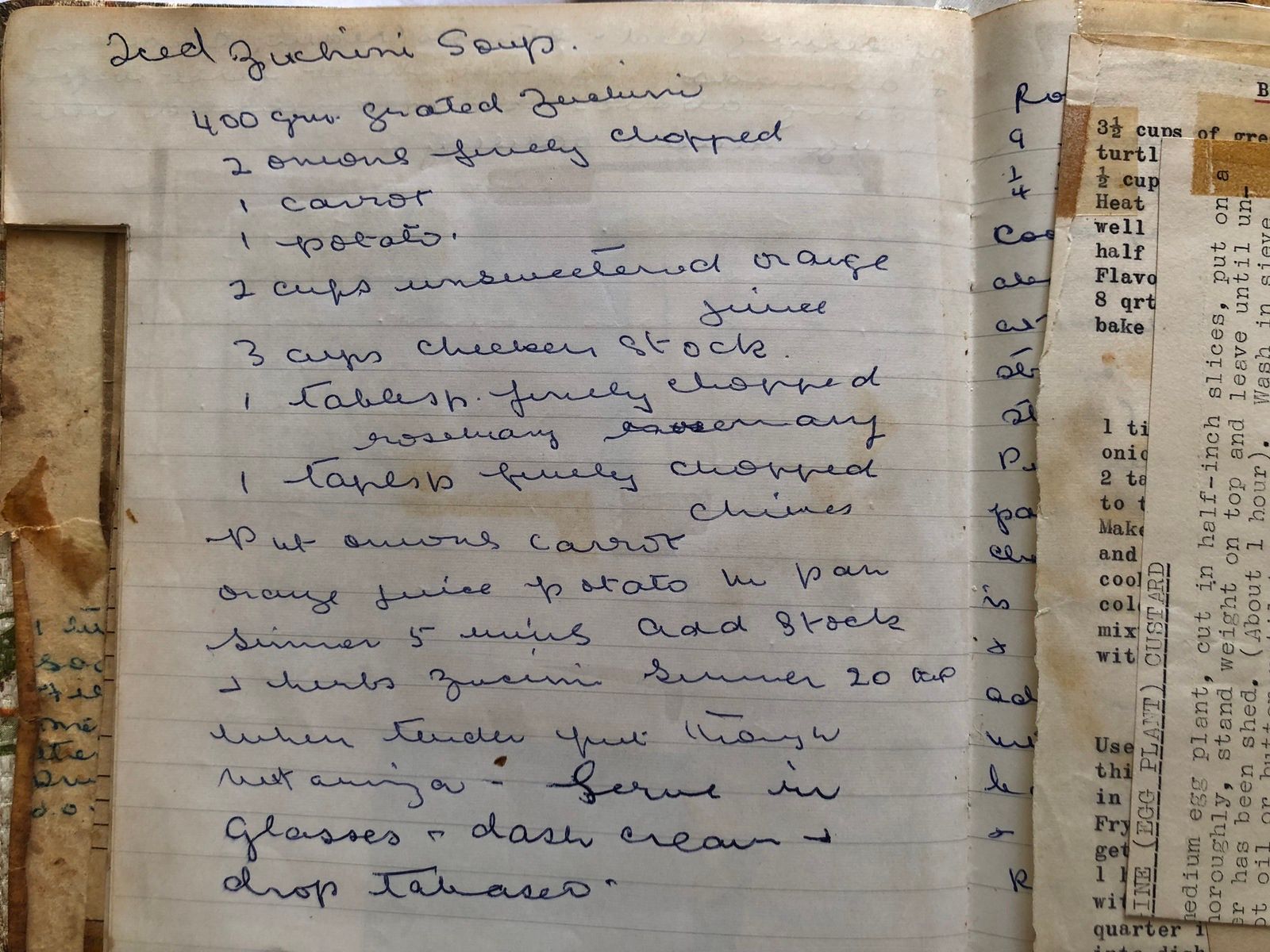

Thank you for reading! Next edition will be published on 2 November 2022. Email Pete with suggested submissions.
Special thanks to Judy Benham, Charles Blass, Wendy Elford, Julian Gómez, Ken Homer, and Jerry Michalski for their contributions to this issue.